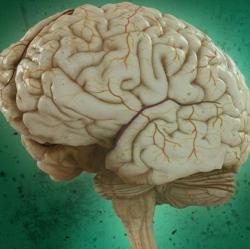
It’s hard to pin down exactly what makes us remember things. When you see an image, what makes you decide you’ve seen it before? A new study has tackled this question, identifying a group of neurons that participate in the process of identifying images as familiar.
While this may seem counterintuitive, it probably feels like you either recognize something automatically or you don’t, your brain makes that determination using different aspects of your memory. “Determining whether a stimulus is novel or familiar is a complex decision involving the comparison of sensory information with internal variables,” the authors explain in their paper.
When your brain makes a decision, it’s often accompanied by an assessment of how accurate that decision is. Was I right to buy that car? My brain would consider a number of factors; the driving experience, the gas mileage, and so on, before concluding it’s pretty likely I’m making the right decision. These confidence values are an essential part of the decision-making process, at least for humans, as it helps us navigate our complex environment.
The decision of whether you recognize something is no exception. But exactly how your brain makes confidence judgments about familiarity is not well understood. One model holds that the ability might rely on evaluating the decision after it has been made, an ability that might be unique to humans.
Other models propose that confidence judgments are an essential part of the decision-making process itself, confidence in the decision is assessed by the same mechanism that makes the decision in the first place. Unlike the other model, it doesn’t require advanced cognitive abilities exclusive to humans, and thus we would expect to find this in other animals.
Confidence judgments in perceptual decisions can be studied in animals, and this work has recently provided evidence for the latter model. These studies show that animals seem to have the ability to make confidence judgments about decisions they’re making, but this has not been tested when it comes to memory-based decisions.
